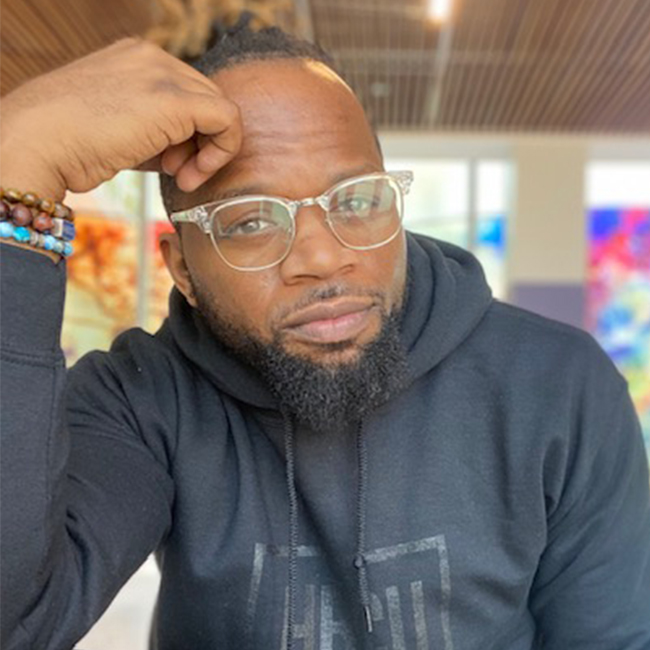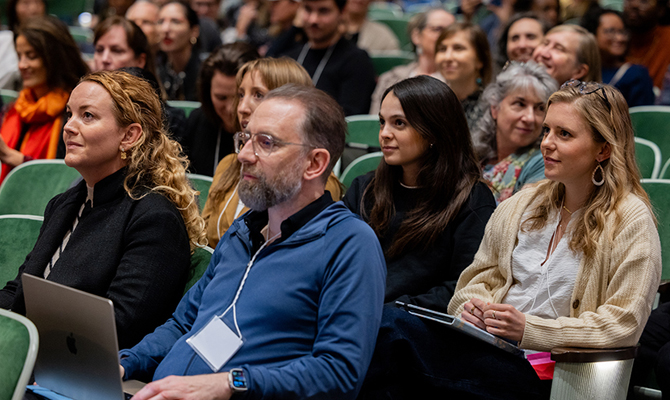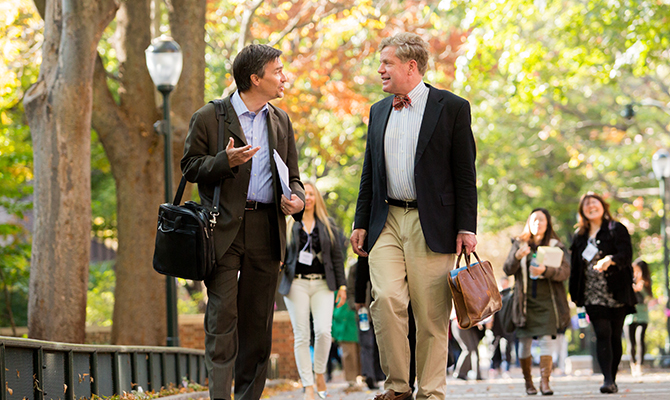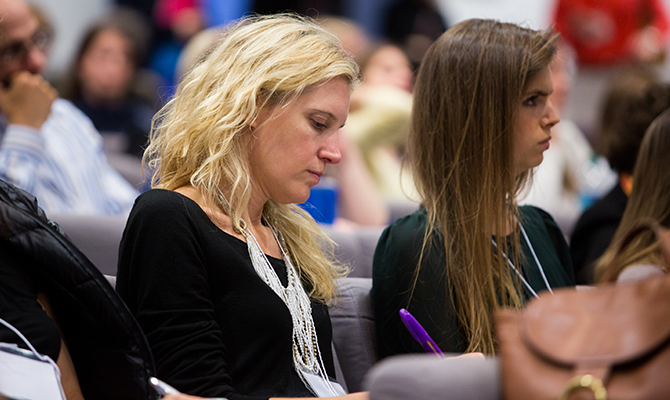
Director of Culture and Empowerment, Ron Brown Preparatory High School
Master of Applied Positive Psychology, ‘21
Bowie State University, Bachelor of Science, Public Relations, Advertising, and Applied Communication, ‘15
As the Director of Culture and Empowerment at Ron Brown Preparatory High School in Washington D.C., Dawaine Cosey manages the student experience as well as parent and social media engagement. Dawaine says that he essentially had the opportunity to create the position for himself, and now, as a student in the Master of Applied Positive Psychology (MAPP) at Penn, he sees that he has been using fundamentals of positive psychology in his job all along. He speaks enthusiastically about the orientation that he organizes every year for incoming freshman: “We make a really huge deal out of their entrance into our community.” The freshmen spend a week at the end of the summer with staff and with each other that culminates in a ceremony on the first day of school. The ceremony is modeled after a rite of passage custom of the Xhosa people of South Africa. In this custom, boys are presented with an artifact in recognition of their assigned place in the community. In the freshman ceremony, the students are presented with ties (Ron Brown is an all-boys school) which is then tied by a male community member. The purpose of this rite of passage ceremony is to create a sense of “mattering and belonging” because as Dawaine says, “people have to feel valued in order to add value. When there’s both the feeling and the adding, they feel like they matter, or they belong. It all has a very PERMA vibe,” he jokes, “and I didn’t even know it.”
Before coming to the MAAP program, Dawaine may not have known what PERMA was, but he knew that what he wanted to continue affecting positive change. He wanted to learn more about it, but as he says, “I just didn't know what it was called.” Dawaine ended up enrolling in a sociology program at Morgan State University in Baltimore. He says that he was excited at first just to be a student again, but he quickly realized that sociology was not what he had been looking for. He describes how he remained optimistic because he was hopeful of getting a job in Oklahoma that he had interviewed for and planned to leave the program then. “I didn't get the job, and I was so crushed by that. I left the program at Morgan anyway, and honestly, a week later, I found the MAPP program.”
Dawaine only had ten days to get all the application materials together, so when he gained admission, he knew it was meant to be. He had applied for The Christopher Peterson Memorial Fellowship, but didn’t receive it; however, feeling deeply that this program was where he was supposed to be, he started the program anyway. He was able to stay in the program when two more scholarships were offered in the fall. “Luckily, we were so fortunate and blessed with more donations to the fellowship that they were able to offer three this year, and it's so crazy that the other two recipients are the only other two African American students in the cohort. To see these amazing Black scholars, who have such a passion for what they do, who are so smart—to see them and to be included with them—that is really powerful.”
Dawaine’s goal after finishing the MAAP program is to work in higher education, specifically in historically Black colleges and universities (HBCUs). One goal he has is to bring the language of positive psychology to students by developing courses that increase accessibility to the philosophy behind it. He passionately believes that the principles of positive psychology are something that everyone can relate to, that everyone has experience with. “I think that's why positive psychology was so attractive to me, because it’s things that we can all recognize without having the language to explain it or justify it.” He speaks of his own experience growing up: “It was creating memories and engaging. It was the value of relationships and family. It was to laugh as much as you can and experience positive relations. It was to get yourself back on your feet. There were all these attributes of positive psychology that we just called different things.”
One higher education course proposal Dawaine is working on revolves around flourishing—specifically urban flourishing in underserved communities. By bringing this course to HBCUs, he hopes to enable students to “wrap their minds around this concept and what it looks like under parameters and in underserved communities. How do people in those communities flourish?”
Through his service learning project in MAAP, Dawaine has had the opportunity to get a taste of working in higher education. His group has been assisting Russell Sage College “personify the university and become a positive organization.” Helping to develop positive organizations is another aspect of higher education in which Dawaine sees a future for himself. One area where he identifies the need for this work is with male college athletes. “I think that oftentimes there are structures in place where students are taught how to be better athletes, but not to be their best person.” He believes the time in college is a huge part of self-development, so he is really interested in that transitional period. “We need to home in on the people that our kids are becoming not just the work that they're doing.”






